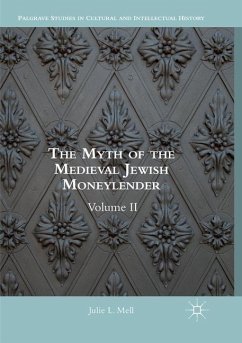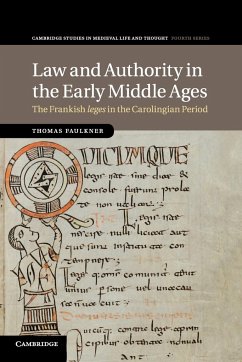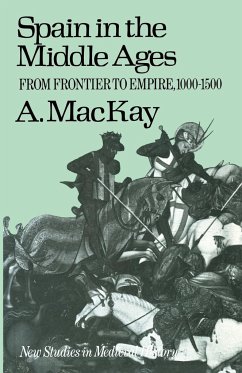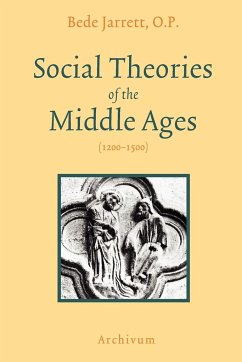
Shaping Relations During the Middle Ages in Southwestern Europe
Centres and Peripheries
Herausgegeben: Bridgewater Mateu, Pol; Costa-Badia, Xavier; Marcé Sánchez, Jaume; Miquel Milian, Laura
Versandkostenfrei!
Erscheint vorauss. 22. Januar 2026
112,99 €
inkl. MwSt.

PAYBACK Punkte
56 °P sammeln!
This book deploys the analytic model of centres and peripheries to study medieval southwestern Europe and, more specifically, the Iberian Peninsula. Here, the reader will find engaging, up-to-date scholarship on the monastic management of landscapes and hydric resources; the diffusion of fishing techniques; the roles of epigraphy and consecrations in establishing territorial, cultural, and jurisdictional boundaries; the symbolic aspects of royal legitimacy in late antiquity; the identitarian and memorialistic strategies deployed by trans-national aristocratic dynasties; the expansion of corso-...
This book deploys the analytic model of centres and peripheries to study medieval southwestern Europe and, more specifically, the Iberian Peninsula. Here, the reader will find engaging, up-to-date scholarship on the monastic management of landscapes and hydric resources; the diffusion of fishing techniques; the roles of epigraphy and consecrations in establishing territorial, cultural, and jurisdictional boundaries; the symbolic aspects of royal legitimacy in late antiquity; the identitarian and memorialistic strategies deployed by trans-national aristocratic dynasties; the expansion of corso-piracy in the Mediterranean; and the transformation in the organization of feudal landscapes.
Within this diversity of themes, the intrinsic tension between centres and peripheries serves as a common thread. This inherently comparative approach facilitates the construction of geographical and political systems, inter-regional hierarchies and connections, and, ultimately, a more comprehensive view of past societies. Indeed, medieval societies, territories, and cultures are particularly well-suited for these approaches due to the fragmented and highly localized nature of power, development of diverse languages and cultural systems, and exploitative nature of economic relations.
Within this diversity of themes, the intrinsic tension between centres and peripheries serves as a common thread. This inherently comparative approach facilitates the construction of geographical and political systems, inter-regional hierarchies and connections, and, ultimately, a more comprehensive view of past societies. Indeed, medieval societies, territories, and cultures are particularly well-suited for these approaches due to the fragmented and highly localized nature of power, development of diverse languages and cultural systems, and exploitative nature of economic relations.












